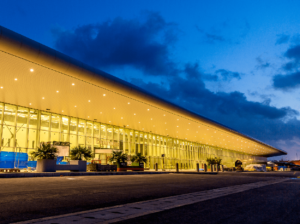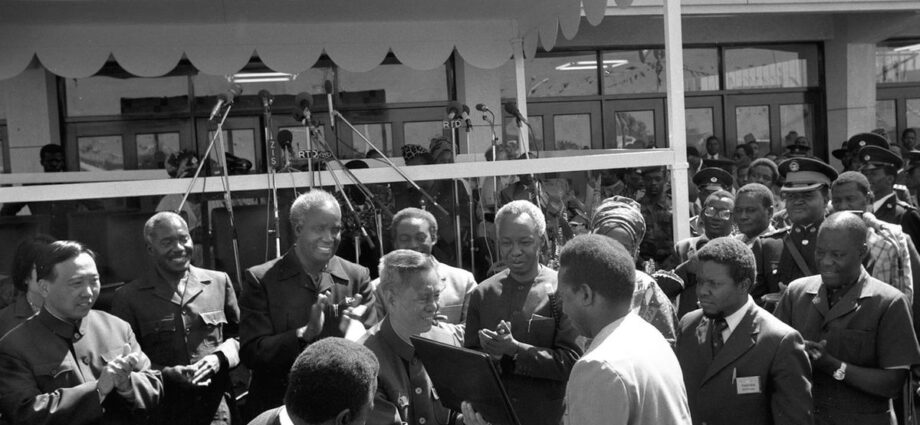
When Julius Nyerere visited Mao’s China in 1965, the two leaders discussed the proposed railway connecting Tanzania and Zambia. In the meeting, Mao asked Nyerere whether the railway would help the struggle for the liberation of Africa. When Nyerere responded affirmatively, Mao declared that “the railway will be built”.
That is how fast the Tazara business was concluded then.
China had just emerged from the scourge of imperialism, and it shared a great sense of solidarity with the nations still subject to colonialism. Tazara was intended to be a great symbol of friendship between the peoples of China and Africa.
Given this background, as Tanzania and Zambia work towards the anticipated upgrade of Tazara to the SGR level through the public-private partnership (PPP) arrangement needed to make Tazara successful, it is impossible to look beyond China as a partner.
Tazara is a Chinese baby in every aspect that matters. The project would not have been possible without China. And operations would not have survived this long without China. As a result, China has earned the right to first consideration as Tanzania and Zambia move from this point forward.
However, Maoist China is long gone. There is a new China in place. It is calculating and capitalising. It is the nation that has conceived of the most expensive infrastructure project in history to further its interests. The Belt and Road Initiative (BRI) is a brilliant plan that allows China to export its excess capital, industrial products, and workers while locking 70 nations into its economy.
It is instructive to understand how far from Maoist China the China of today is.
In 2016, Malaysia inaugurated a 16 billion dollar East Coast Rail Link (ECRL) project which was part of the BRI.
But the legendary Malaysian leader, Dr Mahathir Mohamed, emerging from retirement with guns blazing, called China “new coloniser” and branded the project “predatory”.
“Everything is imported,” Mahathir lamented, “The workers are from China, all the materials are from China, and payments are made in China.”
After regaining power, Mahathir cancelled the project. The project was only revived when a new deal was agreed which brought the cost down by 5 billion dollars, increased the share of Malaysian workers in the project, among other things.
That is the China that Tanzania and Zambia have to deal with.
When John Magufuli took office, he also cancelled the contract given to the Chinese to build the Tanzanian SGR project. When the project was retendered, it was granted to a Turkish firm, reportedly at a cheaper cost than the Chinese.
The Bagamoyo Special Economic Zone (SEZ) proposal had the same fate. Magufuli called the discussions off, claiming that the Chinese terms were unacceptable.
Magufuli also rejected the 2016 Chinese proposal to take over the management of Tazara. Apart from asking for a 30 years of tax-free operations, the proposal appeared to have exaggerated the cost by almost 70 percent. Even though Zambia, drowning in debt, was eager to bite that bullet, Magufuli would not have it.
According to some sources, up to 50,000 Chinese labourers were involved in the backbreaking construction of Tazara. Building on that experience, the Chinese became the global master builders of railway tracks. Half a century later, China leads the world by possessing over 40,000km of high-speed rail (HSR), more than the rest of the world combined.
However, wherever the Chinese go, their standards, technology, materials are used, and people go. That eventually locks nations in a cycle of dependence on China. The case of Tazara is quite informative here again. It will take significant effort to end that dependence.
The Chinese know what they want, and they go after what they want with passion. Once they have set their eyes on something, they are a formidable foe to contend with. They are relentless. They bide their time. They have no qualms about spending lots of cash to achieve their ends. So, unless there is a Magufuli-like wild card, God have mercy on you.
The Chinese contractors would probably deserve the Tazara SGR project. God knows that they have done enough to earn that right. However, diligence must be made to ensure that the contract is open and fair. The goal is to avoid what the former US VP Mike Pence amusingly referred to a “constricting belt” and a “one-way road”, a sarcastic remark about BRI.
Tazara will be the second big SGR project for Tanzania, with many more phases for the Central Railway to come, as per the current government’s plans. The question is – do Tanzanians and Zambians know what they want from this project?
For how long, for example, will Tanzania continue to depend on others to build its railways? With Tazara having Chinese “experts” stationed there permanently, one must ask: For how long will the dependence on foreigners to do basic operations continue? Given the huge amount of materials imported from abroad, for how long will that continue?
You cannot blame the Chinese, the Americans or others for going after their interests with passion. That is what mature nations do. The question is can Tanzania and Zambia safeguard their interests in the same way?
If not, you will simply become another sucker, a nation that others will take advantage of. Unless, of course, you have your own Mahathir Mohamed.
But what are the chances of finding one in these parts?
Share this news
This Year’s Most Read News Stories

Tanzania Declares End of Marburg Virus Disease Outbreak

Tanzania today declared the end of Marburg virus disease outbreak after recording no new cases over 42 days since the death of the last confirmed case on 28 January 2025.
The outbreak, in which two confirmed and eight probable cases were recorded (all deceased), was the second the country has experienced. Both this outbreak, which was declared on 20 January 2025, and the one in 2023 occurred in the north-eastern Kagera region.
In response to the latest outbreak, Tanzania’s health authorities set up coordination and response systems, with support from World Health Organization (WHO) and partners, at the national and regional levels and reinforced control measures to swiftly detect cases, enhance clinical care, infection prevention as well as strengthen collaboration with communities to raise awareness and help curb further spread of the virus.
Growing expertise in public health emergency response in the African region has been crucial in mounting effective outbreak control measures. Drawing on experience from the response to the 2023 Marburg virus disease outbreak, WHO worked closely with Tanzanian health authorities to rapidly scale up key measures such as disease surveillance and trained more than 1000 frontline health workers in contact tracing, clinical care and public health risk communication. The Organization also delivered over five tonnes of essential medical supplies and equipment.
“The dedication of frontline health workers and the efforts of the national authorities and our partners have paid off,” said Dr Charles Sagoe-Moses, WHO Representative in Tanzania. “While the outbreak has been declared over, we remain vigilant to respond swiftly if any cases are detected and are supporting ongoing efforts to provide psychosocial care to families affected by the outbreak.”
Building on the momentum during the acute phase of the outbreak response, measures have been put in place to reinforce the capacity of local health facilities to respond to potential future outbreaks. WHO and partners are procuring additional laboratory supplies and other equipment for disease detection and surveillance and other critical services.
Marburg virus disease is highly virulent and causes haemorrhagic fever. It belongs to the same family as the virus that causes Ebola virus disease. Illness caused by Marburg virus begins abruptly. Patients present with high fever, severe headache and severe malaise. They may develop severe haemorrhagic symptoms within seven days.
In the African region, previous outbreaks and sporadic cases have been reported in Angola, the Democratic Republic of the Congo, Ghana, Kenya, Equatorial Guinea, Rwanda, South Africa and Uganda.
Source: allafrica.com

Mbeto on Mwinyi: He created today’s affluent people
The CCM Secretary of Ideology and Publicity (Zanzibar), Mr Khamis Mbeto Khamis, said the late President Ali Hassan Mwinyi was the architect of the current class of affluent people.Continue Reading

Zanzibar Airports Authority enforces Dnata monopoly
. Airlines that have not joined the Zanzibar Airports Authority’s (ZAA) preferred ground handler, Dnata, at the Abeid Amani Karume International Airport (AAKIA) face eviction from the Terminal Three building Dnata is the sole ground handler authorised to provide services for flights that operate at Terminal 3.Continue Reading










